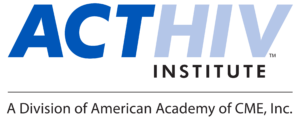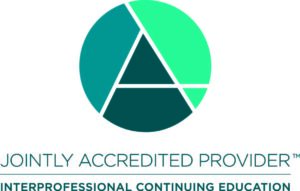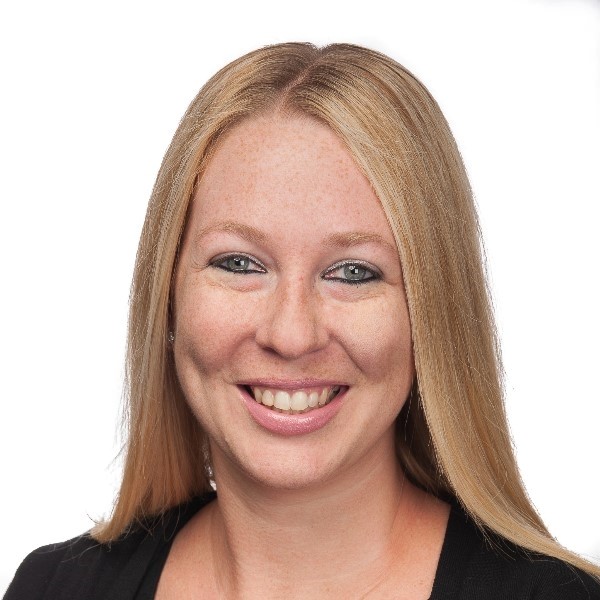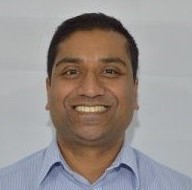Case Studies in HIV Resistance Testing and Treatment – Experienced Patients
|
Release Date: November 21, 2023 |
 |
Support for this activity has been made possible through an |
Educational Need:
Through a series of patient cases, participants will explore the complexities of managing HIV infection in patients who have been treated with multiple different HIV regimens. Participants will engage in real-life case studies that will provide valuable insight into the intricacies of HIV treatment and resistance testing. Our faculty educators will discuss commonly encountered challenges faced by the care team and their treatment-experienced patients with HIV and offer real-life strategies and evidence-based recommendations to improve outcomes.
Learning Objectives
- Define HIV resistance and its clinical implications
- Explore the mechanisms underlying the development of HIV drug resistance
- List common mutations in the following classes of antiretrovirals: NRTIs, NNRTIs, PIs, and INSTIs
- Explain the importance of HIV genotypic and phenotypic resistance testing and how results inform treatment decisions and regimen selection
- Discuss evidence-based approaches to antiretrovirals in treatment-experienced patients
- Explain the importance of multidisciplinary care teams in improving treatment outcomes
Activity Faculty
|
|
Faculty Bios:
Melissa Badowski, PharmD, MPH, is a Clinical Professor in the Section of Infectious Diseases Pharmacotherapy in the Department of Pharmacy Practice at the University of Illinois at Chicago College of Pharmacy. She is a Board-Certified Pharmacotherapy and Infectious Diseases Specialist and an American Academy of HIV Medicine Pharmacist Specialist. She cares for individuals in custody throughout the State of Illinois through an interdisciplinary HIV telemedicine clinic with the Illinois Department of Corrections.
Additionally, she practices at an outpatient infectious diseases clinic at the University of Illinois Hospital and Health Sciences System. Her current research focuses on treatment and prevention of HIV, development of adverse effects and resistance, and the role of telemedicine in the management of HIV.
Mahesh C Patel, MD, is a Professor in the Division of Infectious Diseases in the Department of Internal Medicine at the University of Illinois at Chicago College of Medicine. Dr. Patel has been working in Infectious Diseases since 2001. He has been caring for persons with HIV (PWH) for ~ 22 years. He also has a background in basic, translational, and clinical HIV research. His primary clinical roles involve caring for PWH and Hepatitis C in the Illinois Department of Corrections (IDOC) in an interdisciplinary HIV telemedicine clinic as well as the hospital care of patients with transplant-associated infectious diseases.
In addition, he is extensively involved in the teaching of microbiology and infectious diseases at the medical school level. He also speaks regularly to new HIV clinicians through the Midwest AIDS Training and Education Center (MATEC). His current research involves implementation of the National HIV Curriculum (NHC) in colleges of medicine throughout the country as well as the role of telemedicine in the management of PWH.
Accreditation and Credit Designation

In support of improving patient care, American Academy of CME, Inc. is Jointly accredited by the Accreditation Council for Continuing Medical Education (ACCME), the Accreditation Council for Pharmacy Education (ACPE), and the American Nurses Credentialing Center (ANCC), to provide continuing education for the healthcare team.
Physicians
American Academy of CME, Inc., designates this enduring material for a maximum of 1.00 AMA PRA Category 1 CreditsTM. Physicians should claim only the credit commensurate with the extent of their participation in the activity.
Nurse Practitioners and Nurses
American Academy of CME, Inc., designates this educational activity for 1.00 ANCC contact hours.
California
Provider approved by the California Board of Registered Nursing, Provider Number CEP16993 for 1.00 contact hours.
Physician Assistants
American Academy of CME, Inc. has been authorized by the American Academy of PAs (AAPA) to award AAPA Category 1 CME credit for activities planned in accordance with AAPA CME Criteria. This activity is designated for 1.00 AAPA Category 1 CME credits. Approval is valid until November 21, 2024 PAs should only claim credit commensurate with the extent of their participation.
All other members of the care team will receive a certificate of participation.
Target Audience
This activity has been designed to meet the educational needs of the HIV care team, including physicians (both specialists and primary care/family medicine), nurses, nurse practitioners, physician assistants, and pharmacists who are in practice but are newer to HIV medicine or who are in training. Other healthcare providers may also participate.
Disclosure Statement
According to the disclosure policy of the Academy, all faculty, planning committee members, editors, managers and other individuals who are in a position to control content are required to disclose any relationships with any ineligible company(ies). The existence of these relationships is not viewed as implying bias or decreasing the value of the activity. Clinical content has been reviewed for fair balance and scientific objectivity, and all of the relevant financial relationships listed for these individuals have been mitigated.
Disclosure of relevant financial relationships are as follows:
Faculty Educator/Planners
Melissa Badowski, PharmD, MPH: No relevant financial relationships to disclose.
Mahesh C. Patel, MD: No relevant financial relationships to disclose.
Planners
John JD Juchniewicz, MCIS, CHCP, FACEHP; Natalie Kirkwood, RN, BSN, JD; Edward Moylan RP; Daiquiri Y. Robinson: No relevant financial relationships to disclose.
ACTHIV® Institute Advisory Board Disclosures:
Roger Bedimo, MD, MS, discloses the following: Advisory Board— ViiV Healthcare, Gilead Sciences, Merck, Theratechnologies, Janssen, Shionogi; Grant/Research Support: Merck, Merck*
Carlos del Rio, MD: No relevant financial relationships to disclose.
Jose Gutierrez, PhD, FNP-BC: No relevant financial relationships to disclose.
H. Nina Kim, MD, MSc, discloses the following: Grant/Research Support—Gilead Sciences
Asa E. Radix, MD, PhD, MPH: No relevant financial relationships to disclose.
William R. Short, MD, MPH, discloses the following: Advisory Board—ViiV, Gilead Sciences; Grant/Research Support—Gilead Sciences; Janssen*
Sarah Smith, MHS, PA-C, AAHIVS, discloses the following: Advisory Board—ViiV, Gilead Sciences, Janssen, Merck; Speaker’s Bureau— ViiV, Gilead Sciences, Janssen, Merck
Susan Weiss, FNP-BC, MSN, discloses the following: Advisory Board—ViiV, ViiV*
*Relationship has ended
This activity reviews off-label or investigational information.
The opinions expressed in this accredited continuing education activity are those of the faculty, and do not represent those of the Academy or its ACTHIV® Institute. This educational activity is intended as a supplement to existing knowledge, published information, and practice guidelines. Learners should appraise the information presented critically, and draw conclusions only after careful consideration of all available scientific information.
Implicit Bias
Implicit bias refers to unconscious attitudes and stereotypes that influence our thoughts, judgements, decisions, and actions without our awareness. Everyone is susceptible to implicit bias, even clinicians. In healthcare, implicit biases can have a significant impact on the quality of care an individual receives. These biases can be both favorable and unfavorable, and are activated involuntarily without an individual’s awareness or intentional control.
Studies have indicated that healthcare providers’ incorrect perceptions can impact providers’ communications and clinical decision-making contributing to disparities in clinical outcomes. Addressing implicit biases in healthcare is critical to improving health outcomes and promoting health equity for all patients. Patient-centered care can reduce the impact of implicit bias, by treating each patient as a unique individual who may or may not hold beliefs associated with their backgrounds and circumstances. In addition, recognizing implicit bias in one’s own practice using techniques such as self-reflection and mindful clinical decision-making can ensure more equitable and effective care to all patients.
Over the past several decades, cognitive science research has demonstrated human behavior, beliefs and attitudes are shaped by automatic and unconscious cognitive processes. The healthcare profession is devoting greater attention to how these automatic and unconscious processes impact care including: (1) preferential treatment toward or against specific patient populations causing healthcare inequities, (2) influence patient-provider communications leading to misunderstandings and mistrust, and (3) impact access to healthcare and affect treatment decisions resulting in misdiagnosis, delays in treatment and specialty referrals and poor pain management.
Considering one might have unconscious biases and exploring them may be uncomfortable because the very idea that they exist may conflict with how clinicians perceive themselves. It is only by becoming aware of one’s unconscious biases that members of the healthcare team can take steps to mitigate them to ensure all their patients are treated receive quality healthcare.
Instructions on How to Receive Credit
There are no fees to participate in the activity. Participants must review the activity information including the learning objectives and disclosure statements, as well as the content of the activity. To receive CME/CE credit for your participation, please complete the post-assessment and program evaluation. Your certificate will be available for printing immediately.
Privacy and Contact
For more information about the American Academy of CME privacy policy, please access http://www.academycme.org/privacy.htm For any questions, please contact: [email protected].
Hardware/Software Requirements
This program should be viewed at a resolution of 1024 x 768 or higher using current versions of Microsoft Internet Explorer, Firefox, Chrome or Safari. A high-speed Internet connection is recommended.
Copyright
© 2023. This accredited continuing education activity is held as copyrighted © by American Academy of CME. Through this notice, the Academy grants permission of its use for educational purposes only. These materials may not be used, in whole or in part, for any commercial purposes without prior permission in writing from the copyright owner(s).


